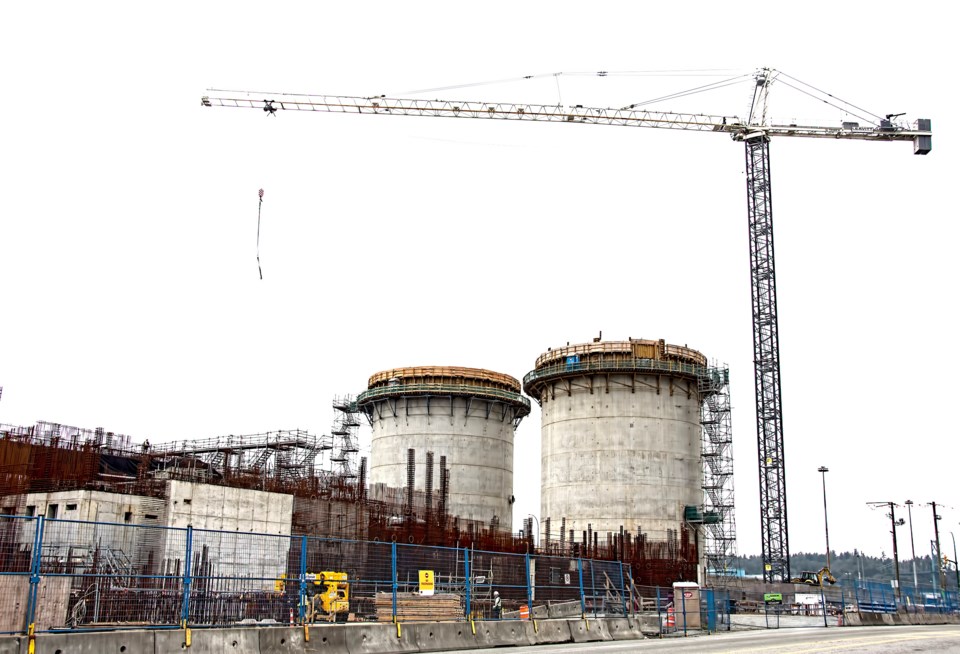Anyone reading Metro Vancouver’s latest governance review can be forgiven for wondering how it morphed into a discussion of the plight of its poor board directors, and not the over-extended taxpayers paying ever-growing bills for this sprawling regional bureaucracy.
Key finding No. 3 highlights this puzzling approach: “The Board directors are challenged by their competing fiduciary duties to advocate for their local municipality and their regional accountability. In order to balance this dual accountability, Board members are going to require continued education, support from Metro Vancouver staff, and a personal investment in maintaining the high threshold required.”
Or, in the (not quite) words of the ever-hysterical The Simpsons character Helen Lovejoy: Won’t somebody please think of the politicians?
The report stops far short of recommending transformative and bold reforms, such as a fully independent board, directly elected directors, or full provincial oversight of infrastructure projects that Metro has mismanaged. Or the most necessary change of all: hacking back Metro Vancouver’s swollen bureaucracy.
Over the years, Metro has taken on far too many jobs, rather than focusing on being the utility it should (and arguably was intended to) be, and delivering top-notch service at a cost taxpayers can afford. Now it’s time to radically prune the organization, not worry about its most delicate branches—the board directors.
Metro Vancouver should quit doing anything except deliver water, sewer and waste services. Parks should be devolved to municipalities or taken over by the provincial government, depending on the best fit. Metro’s social housing portfolio should be managed by BC Housing. Planning should be left in the hands of cities and directly accountable mayors and councils. Air quality should be handled by the Ministry of Environment, in keeping with how things are done elsewhere in B.C. and in all other provinces. And there is no shortage of boards of trade, business improvement associations and local governments that can take over Metro’s economic development efforts, something these organizations already do daily.
By reducing duplication and the scope of the varied services it delivers, Metro could cut back on the number of committees and boards it needs to run the place, and on its high-priced staff.
Instead, the report recommends a Frankenstein board—half elected politicians, half appointed experts—that somehow answers to everyone and no one at the same time.
They call it a “hybrid,” but it’s bureaucratic doublespeak: layer on a few credentialed insiders to make things look more professional, while keeping the same bloated, dysfunctional system underneath. The only thing hybrid about this idea is how it combines the worst of both worlds: unaccountable technocrats and parochial politicians, united only by their ability and desire to spend other people’s money.
Metro Vancouver staff already drive the organization’s agenda. Adding a handful of independent experts to the board would do nothing to address the key issue—the lack of true accountability at Metro.
Two lines from the report are especially interesting: “Increasing tensions and political differences are creating a culture of heightened mistrust and frustration,” and “the current Board has more disparate beliefs and values than previous Boards, leading to more split voting. While there has historically been around 90-95% unanimous voting, in recent years this has shifted to more split or divided voting.”
Disagreement amongst board members should be considered a feature, not a bug, and the consultants’ seeming desire for regional groupthink needs to be rejected. While taxpayers are left to pay annual special levies for decades to come for the North Shore Wastewater Treatment Plant—a boondoggle that bloated from $700 million to $3.86 billion and is half a decade behind schedule—nothing has changed at Metro.
Metro Vancouver’s governance isn’t suffering from a lack of staff education or credentials. It’s suffering from a lack of accountability, an unchecked expansion of its mandate, and any sense of the enormous responsibility for the billions in taxpayer dollars they spend annually.
This report could have been a bold call for change. Instead, it mainly nibbles around the edges, and steers clear of proposing fundamental reform. But taxpayers are paying attention now—bloated pay packets and over-budget projects are a wake-up call that Metro is broken. We’ve seen what happens when Metro’s priorities drift, its mandate expands and no one is willing to say no to staff.
It’s not too late to fix this, but it starts by putting the public interest ahead of the status quo political comfort. In recent months, there have been voices at the board table demanding real change. They need to be heard, and directors must be bold and demand Metro cut the bloat and put taxpayers first.
Jordan Bateman is vice-president of communication at the Independent Contractors and Businesses Association.


